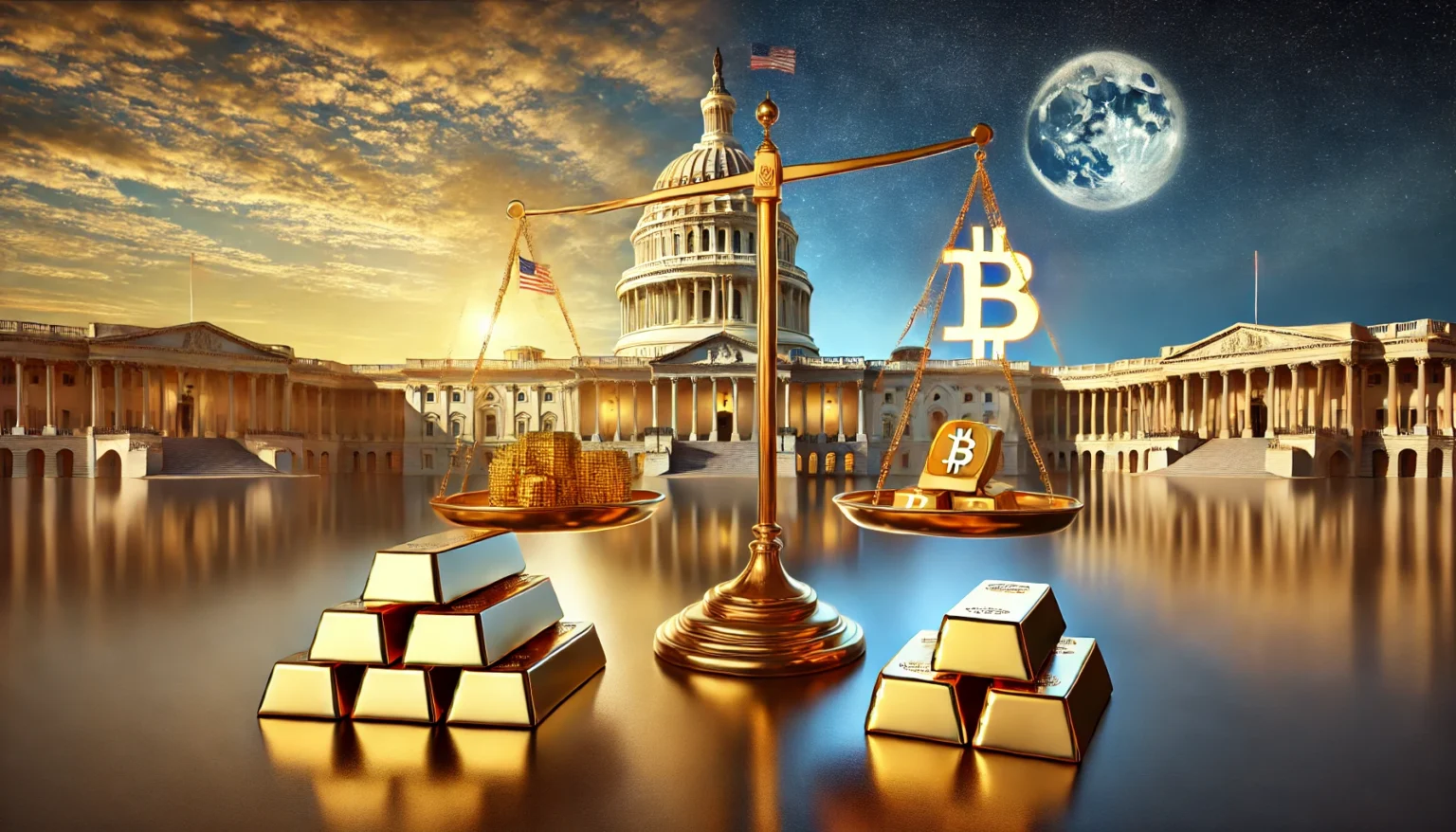In a revolutionary plan aimed at remolding the U.S. economic map, Wyoming Senator Cynthia Lummis has revealed that she will sell some of the country’s gold holdings to establish a strategic Bitcoin reserve. This move, which will marry the unstoppable rise of cryptocurrencies to the strengthening of the U.S. dollar while ameliorating the crushing national debt, has caused great interest and debate around a senator’s radical plan.
Selling Gold for Bitcoin

A key Bitcoin advocate, Senator Cynthia Lummis, recently spoke with CNBC amid the historic rallies in Bitcoin price. She ascribes this rally to the gathered momentum for regulating digital assets and a new discussion unfolding about the strategic Bitcoin reserve to be created. Her plan falls under the greater shove from legislators. Lummis also revealed she is collaborating with Senator Kirsten Gillibrand (D-NY) on far broader crypto regulations that will probably be pressed in 2025. Citing the growing need for clearer policies about cryptocurrencies, she said:
“There’s an appetite now to do a statutory framework for digital assets.”
A strategic Bitcoin reserve corresponds with the forward-thinking vision for global finance. The potentials of this reserve, envisioned by Lummis, extend far beyond the ideological reasons for strengthening the position of the dollar as the world’s reserve currency; it could also function as a mechanism to pay off the national debt to a great extent. The proposal is further energized by the fact that it corresponds with President-elect Donald Trump’s intention to establish the U.S. as a leader in cryptocurrency innovation through a national Bitcoin reserve initiative.
Leveraging Existing Assets for a Bitcoin Reserve
Instead of creating extra costs, Lummis proposes that the Bitcoin reserve be funded by reassessing already existing federal assets. The U.S. Treasury can revalue its outstanding gold certificates, currently valued to the levels of the 1970s, to their current market value and convert them into Bitcoin. It avoids new expenditures while opening a door toward modernizing the nation’s asset portfolio.
Moreover, the senator further indicated that the government already has more than 200,000 Bitcoins obtained through asset forfeiture, which can serve as a starting point for the reserve right away. Such a large amount can be used tactfully without additional buying of Bitcoin. According to Lummis:
This would be an asset that could help shore up the U.S. dollar as the world reserve currency and serve as a reserve that could be used to reduce the national debt significantly.”
This two-pot-strategy positions Bitcoin not only as financial innovation apparatus but also as an apparatus of economic stabilization, possibly much good long-term for the U.S. economy.
Addressing Concerns of Conflict of Interest

Senator Lummis was accused to have conflicts of interest since she is a known Bitcoin proponent and owns some cryptos personally. She responded to this criticism by saying that her Bitcoin and other assets sit in a blind trust.
“I had five Bitcoins and put them along with other stocks I owned into a blind trust,” she said.
A blind trust means that one person controls assets on behalf of another – without that second person’s knowing what the assets are or how they’re managed. This helps prevent favoritism. It is an arrangement especially suitable for public officials like Lummis, whose policies influence values of the assets.
It would represent a crossroads moment in traditional finance and digital innovation, thanks to Senator Lummis’s effort to liquidate gold reserves and set up reserve balances of Bitcoin. Probably setting the U.S. at the forefront of the world of cryptocurrency, modernizing the asset management strategy, and addressing economic challenges plaguing the country’s high national debt.
While still a concept left to the heavy debate and regulatory thought, it definitely reflects the emerging realization of Bitcoin’s value as a revolutionary financial asset. Inasmuch as the U.S. continues the discussion on crypto regulation and reserves management, it can literally draft new pages of world finance leadership.










